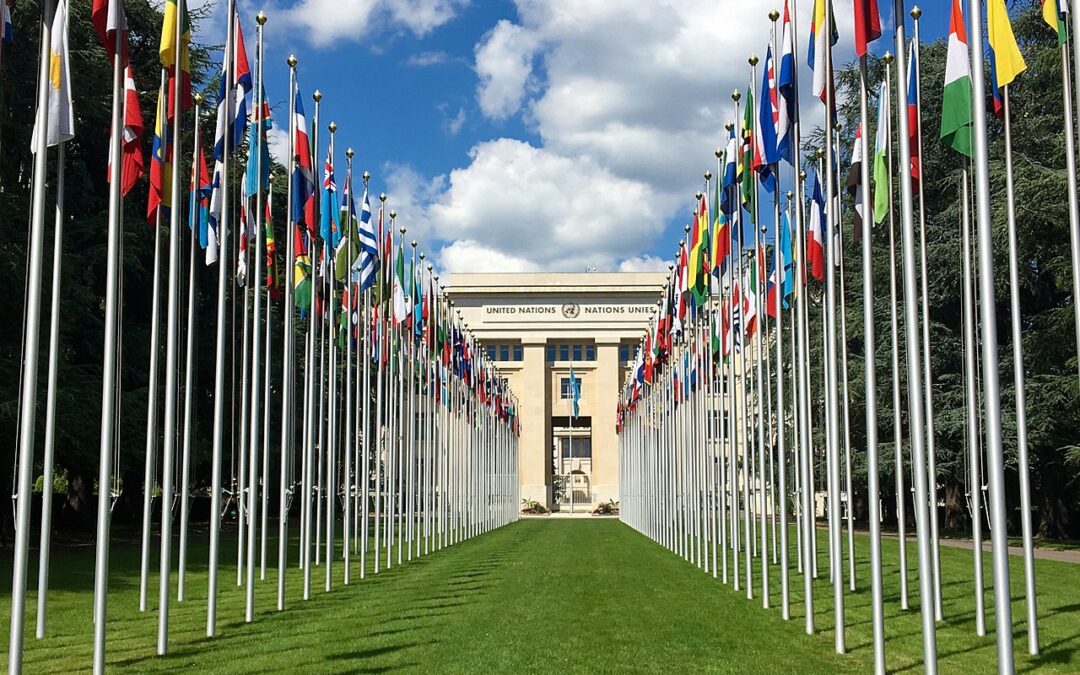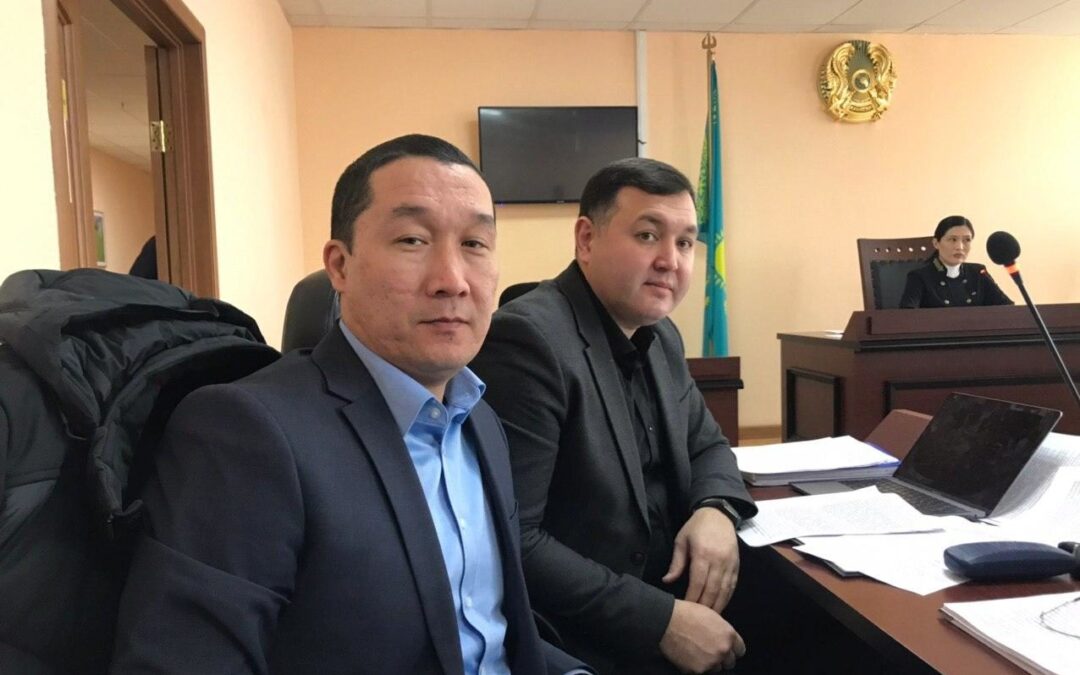
Feb 6, 2020 | Advocacy, News, Non-legal submissions
The ICJ has made a submission to the UN Human Rights Committee in advance of its forthcoming examination of Tunisia’s sixth periodic report under the International Covenant on Civil and Political Rights (ICCPR).
In its submission, the ICJ highlights a number of ongoing concerns with respect to the country’s implementation of and compliance with the provisions of the ICCPR, including in relation to:
- Tunisian authorities’ implementation of the transitional justice law, particularly on issues pertaining to criminal accountability for gross human rights violations;
- Judicial independence and accountability, particularly on issues pertaining to the development of a Judicial Code of Ethics, and
- Tunisia’s failure to establish a Constitutional Court.
The submission is relevant for the Committee’s evaluation of Tunisia’s implementation of the State’s obligations and related Covenant rights under articles 2, 3, 6, 7, 9, 14, 15, 16, 18, 19, 21, 22 and 26 of the ICCPR.
The Human Rights Committee will examine Tunisia’s sixth periodic report during its 128th session, which will be held in Geneva from 2 March to 27 March 2020.
Tunisia submitted its sixth periodic report to the Committee in June 2019 according to the approved simplified reporting procedure and in response to the list of issues identified by the UN Human Rights Committee in April 2018. Among these issues, the Committee requested Tunisia to provide information in relation to: the Constitutional and legal framework within which the Covenant is implemented; transitional justice; and the independence and impartiality of the judiciary.
Download
Tunisia-ICJ-Submission-UNHRC-Advocacy-Non-Legal-Submissions-2020-ENG (full submission, in PDF)

Feb 5, 2020 | Advocacy, News, Open letters
ICJ Commissioners and Honorary Members today denounced the rapidly escalating rule of law crisis in Poland, after a new law was passed that would result in harassment of judges upholding the independence of the judiciary.
A group of 44 ICJ Commissioners and Honorary Members, including senior judges, lawyers and legal scholars from around the world said in their statement “it is clear that the separation of powers, the independence of the judiciary, and the capacity of Polish judges to uphold the rule of law are now severely compromised. Judges’ freedom of expression, association and assembly are under immediate threat.”
The statement
The International Commission of Jurists (ICJ), its Centre for the Independence of Judges and Lawyers (CIJL) and the undersigned Commissioners and Honorary Members of the ICJ are alarmed at the rapidly escalating rule of law crisis in Poland.
It is clear that the separation of powers, the independence of the judiciary, and the capacity of Polish judges to uphold the rule of law are now severely compromised. Judges’ freedom of expression, association and assembly are under immediate threat.
The passing by the Sejm on 23 January of the amendments to the laws on the judiciary, and their signing into law on 4 February, means that judges will be prohibited from questioning the legitimacy or institutional independence of any Polish court, even where its members have been appointed through a politically controlled process, in violation of EU and international law. Judges will face disciplinary action for denying the validity of any judicial appointment.
This law is an attempt to prevent any Polish court from upholding the independence of the judiciary, in the face of repeated legislative and government attacks on judicial independence in recent years.
This is directly contrary to the obligations of judges under the EU treaties to apply EU law, and would therefore lead to violations of Poland’s EU law obligations. It would also lead to violations of Poland’s obligations under international human rights law, since it would require judges to act contrary to their duty to uphold the right to a fair hearing before an independent and impartial tribunal.
As the Venice Commission noted in its recent opinion on the amendments, they are clearly “designed to have a nullifying effect” on recent judgments and resolutions of the Court of Justice of the EU and the Polish Supreme Court, which have called into question the validity of recent judicial appointments. As such, they do severe damage to the rule of law in Poland.
These developments follow recent legislation which has politicised the National Council of the Judiciary (NCJ) and imposed executive control of the appointment process for judges of the Supreme Court, court presidents and other judges. A powerful new Extraordinary Chamber as well as a Disciplinary Chamber of the Supreme Court, appointed under this new system, has further entrenched political control of the judiciary.
The ICJ, its undersigned Commissioners and Honorary Members, applaud the continued resolute defence of the rule of law by sections of the Polish judiciary. This has been evident in the resolution of the Supreme Court (Civil, Criminal, Labour and Social Security Divisions) of 23 January which found that recent judicial appointments meant that some Polish courts were not sufficiently independent to be legitimately constituted.
We deplore the response by President Adrzej Duda in which he suggested that judges opposing the judicial reforms on the judiciary acted out of improper self-interest.
The undersigned ICJ Commissioners and Honorary Members affirm their solidarity with Polish judges, in particular those who are currently facing abusive disciplinary or criminal proceedings for carrying out their judicial functions in accordance with the principle of judicial independence, or for exercising their freedom of expression, association or assembly as a means to defend the rule of law.
We recall that international human rights law and international standards on the judiciary require all branches of government to respect the independence of the judiciary. Furthermore, they recognise that judges have rights to freedom of expression and association and that they have a particularly important role in contributing to discussions on issues of the functioning of the judicial system and the rule of law, especially in defending the independence of the judiciary.
We call on the international community to respond to the Polish rule of law crisis in a manner appropriate to the gravity of the situation, before the damage to the Polish legal system becomes further entrenched.
In particular, we call on the European Union to urgently advance proceedings concerning Poland under Article 7 TEU, in light of the clear breach of EU law and EU fundamental values entailed by the new law, in conjunction with previous reforms, and by the government’s open defiance of decisions of the Court of Justice of the EU and the Polish Supreme Court.
Poland-Commissioners-Statement-Advocacy-Open-Letter-2020-ENG, (full text with all signatories, PDF)

Feb 4, 2020 | News
Today, the ICJ has observed the trial in court proceedings against lawyer Amanzhol Mukhamediarov before the Yesil District Court in Nur-Sultan. Mukhamediarov, Chair of the Committee on the rights of lawyers of the Kazakhstan Bar Association, is facing disbarment following a lawsuit of by the Ministry of Justice of Kazakhstan.
Along with the case against Erlan Gazhymzhanov, who faces disbarment on the same set of facts, this case may raise issues of interference with freedom of expression of lawyers and possible interference in their work. This prompted ICJ to send a mission to observe court proceedings.
This hearing is observed on behalf of the ICJ by a lawyer from the Geneva Bar Association (Switzerland), Ms Xeniya Rivkin, as part of the International Cooperation Initiative project between the ICJ and the Geneva Bar Association.
The observer will carry out an assessment of the case based on the observation of the hearing in light of the materials of the case and the international law and standards on the role and independence of lawyers.
Read also
ICJ trial observation manual
Kazakhstan: ICJ observes hearing in lawyer’s disbarment case
Kazakhstan: frivolous disbarment proceedings against prominent lawyer Sergey Sizintsev should be immediately dropped, ICJ says
Kazakhstan: ICJ alarmed at government interference in legal profession

Jan 30, 2020 | News
The “Peace to Prosperity” plan proposed by the United States, and developed in the absence of any meaningful engagement with Palestinian representatives, is not a serious means to solve the conflict between Israel and Palestinian, and all actors in the international community should reject it, the ICJ said today.
As presented, the Plan would pave the way for Israel to annex large portions of the occupied West Bank, including East Jerusalem, and deny the Palestinians the internationally protected right to self-determination as well as the right to return of Palestinians. In addition, it seeks to legitimize the acquisition of land by force, all in violation of international law and the UN Charter.
On 28 January 2020, US President Donald Trump publicly announced the plan at the Whitehouse in Washington, with Israeli Prime Minister Benjamin Netanyahu at his side.
“The US plan is a political stunt that patently disregards international law and how the rights of Palestinians are recognized and protected under international law,” said Said Benarbia, the ICJ’s MENA Programme Director.
The ICJ emphasized that any claims of sovereignty by Israel over parts of the West Bank, including East Jerusalem, based on this plan would be null, void and of no effect.
The text of the US plan inaccurately asserts that Israel has “valid legal and historical claims over the West Bank” and notes that “[t]he State of Israel and the United States do not believe the State of Israel is legally bound to provide the Palestinians with 100 percent of pre-1967 territory.”
This position runs counter to numerous applicable UN Security Council Resolutions, including Resolution 242, which required Israel’s complete withdrawal from the territory occupied in 1967.
“Any settlement to the conflict between Israel and Palestine must be consistent with international law, including international human rights law and international humanitarian law,” Benarbia added. “This requires negotiations on an equal footing between the parties, optimally with broad international engagement, not simply an intervention by a single State.”
Israeli settlements are established in violation of article 49(6) of the Fourth Geneva Convention, which prohibits the Occupying Power from transferring its own population into the occupied territory.
Their eventual incorporation into Israel would amount to unlawful annexation, in contravention of the prohibition of territorial acquisition by force established by the UN Charter and international law.
The US plan posits that “Jerusalem will remain the sovereign capital of the State of Israel,” apportioning to the State of Palestine the areas of the city beyond the separation barrier. It also denies the right to return of Palestinian refugees.
Effectively making Israel’s occupation of parts of the West Bank permanent, the US plan further provides that Israel will maintain “overriding security responsibility for the State of Palestine” and that the West Bank and Gaza should be fully demilitarized.
Contact
Said Benarbia, Director of the ICJ Middle East and North Africa Programme, t: +41-22-979-3817; e: said.benarbia(a)icj.org

Jan 30, 2020 | News
The ICJ, in collaboration with the Zimbabwe Judicial Service Commission (JSC), convened an Anti-Corruption workshop from 27-30 January 2020.
The objective was to enhance the capacity of judicial and law enforcement officials and prosecutors in respect of their roles in anti-corruption prevention and enforcement and cyber-crime investigation.
The workshop was led by Hon. Justice Lawrence Gidudu, the Head of the Anti-Corruption Division of the High Court in Uganda, who was assisted by Moses Modoi a lawyer specializing in research and capacity building that supports anti-corruption courts.
In his keynote address, Hon. Mr Justice L. Malaba Chief Justice underlined that participation by key justice actors showed commitment towards the fight against corruption.
He noted that the education and training aspects aimed to create a common understanding of standards and techniques to be applied when handling corruption matters.
He expressed the sentiment that there were lessons to be learned from the Ugandan Court which currently has had a high success rate in corruption cases.
The training workshop is part of the ICJ’s wider efforts to ensure access to justice for all in Zimbabwe and elsewhere.
The main focus here was on the global outlook and emergency of anti-corruption action; analysis of municipal Anti-Corruption legislation; managing trials in anti-corruption courts, corruption as a transnational crime, admissibility of digital evidence; asset recovery and ethics and integrity.
There were 49 participants in the portions of the workshops from 27-28 January, including 18 women, comprising Judges from the Zimbabwe High Court; Regional, Provincial and Senior Magistrates; and Registrars from the Superior Courts.
Photo: Justice Loice Matanda-Moyo, Chairperson for the Zimbabwe Anti-Corruption Commission Justice Loice Matanda-Moyo









